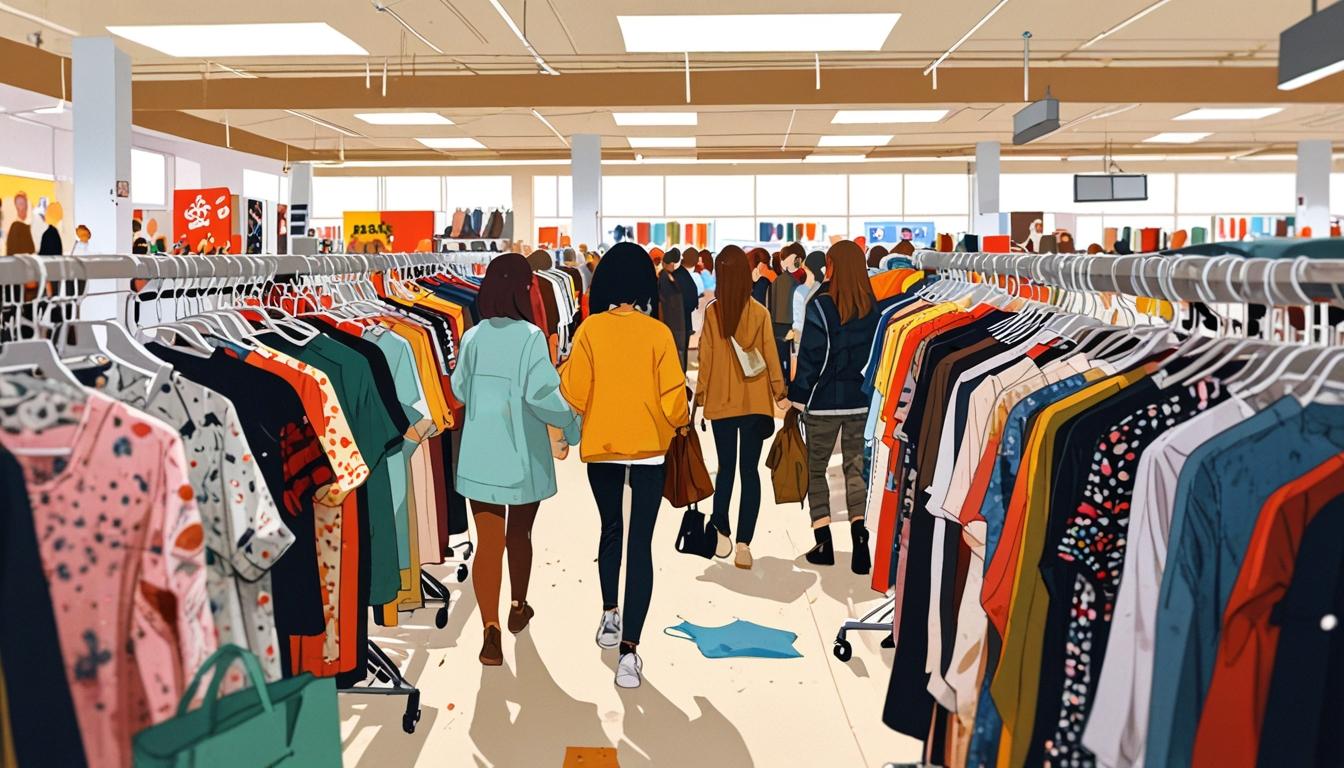As tariffs loom, the clothing industry braces for change while Gen Z and Millennials shift towards secondhand purchasing for affordability and ethics.
As President Donald Trump’s administration advances its campaign promise of implementing tariffs, the clothing industry is preparing for significant changes, which may impact pricing and production. Teen Vogue reports that with a staggering 98% of clothing being manufactured outside the United States, many in the industry are bracing for potential price hikes or compromises such as the use of exploitative labor or inferior materials.
In response to these anticipated shifts, a growing number of consumers, particularly from Gen Z and Millennials, are adapting their shopping strategies. According to a report by ThredUp, an online resale platform, many shoppers have turned to the secondhand market as a cost-efficient and ethical alternative. The analysis, conducted in collaboration with GlobalData, reveals that 59% of consumers indicated that they would seek more affordable options such as secondhand clothing if new government policies on tariffs and trade increase apparel costs. This sentiment is even more pronounced among Millennials, with 69% expressing the same intention.
The report further elaborates on consumer behavior, showing a notable shift in spending habits. Shoppers are planning to allocate 34% of their apparel budgets to secondhand clothing over the next year. Among younger generations—specifically Gen Z and Millennials—this figure rises to nearly half, at 46%. These insights were derived from surveys conducted with 50 U.S. fashion retailers on sustainability and circularity goals.
Retail executives are also acknowledging the potential impact of tariff policies on their operations. ThredUp’s findings indicate that 80% of retail executives expect new government regulations to disrupt their global supply chains. Additionally, 44% are considering ways to reduce their dependence on imported goods, driven by the anticipated impact of tariffs. Furthermore, 54% of these executives view the resale market as a more stable and predictable alternative for sourcing clothing amidst fluctuating tariffs.
As the U.S. government continues to enact various tariffs, the ripple effects on the clothing industry and the burgeoning secondhand market are likely to be subjects of ongoing analysis by fashion experts and retailers alike.
Source: Noah Wire Services





4 Comments